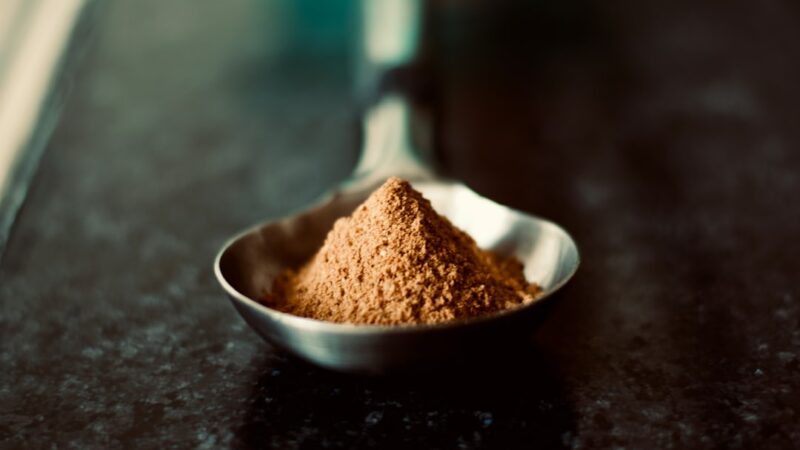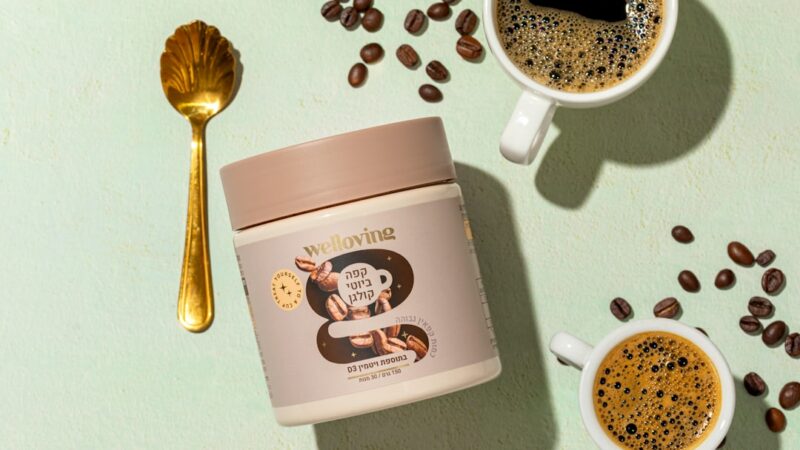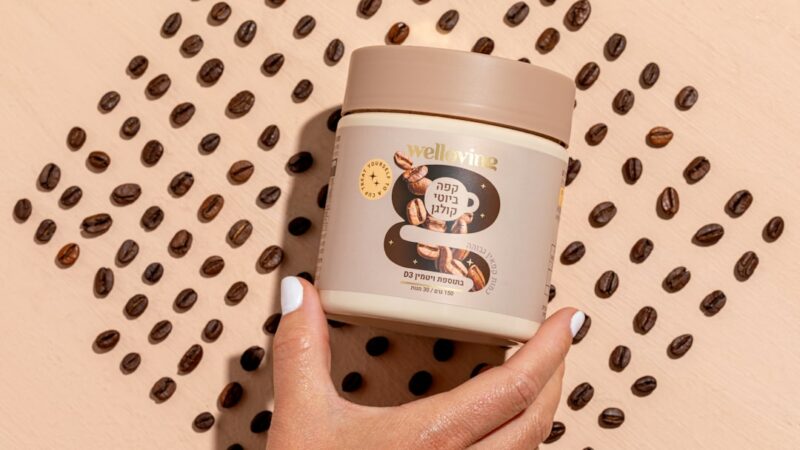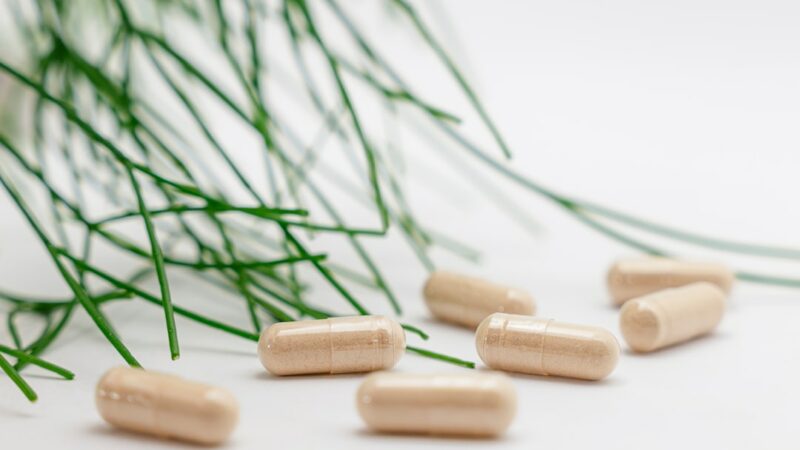“What Are Collagen Peptides? The Essential Guide to This Vital Protein”

Collagen peptides, also known as hydrolyzed collagen, are a form of collagen that has been broken down into smaller, more easily absorbed molecules. Collagen is the most abundant protein in the body and plays a crucial role in maintaining the health and structure of our skin, bones, joints, and connective tissues. It provides strength and elasticity to these tissues, keeping them firm and flexible.
Collagen peptides are derived from animal sources such as bovine or marine collagen. They are typically sold as a powder or in capsule form and can be easily incorporated into your daily routine. Due to their small size, collagen peptides are easily absorbed by the body and can be utilized more efficiently compared to other forms of collagen.
Table of Contents
Key Takeaways
- Collagen peptides are a type of protein that can be easily absorbed by the body and have numerous health benefits.
- Collagen peptides work by providing the body with the building blocks it needs to produce collagen, which is essential for healthy skin, joints, and other tissues.
- Benefits of collagen peptides include improved skin health, joint support, and digestion, as well as potential improvements in athletic performance and anti-aging effects.
- Collagen peptides can be incorporated into your diet through supplements, foods, and recipes, and there are different types of collagen peptides to choose from depending on your needs.
- While collagen peptides are generally safe, potential side effects include digestive issues and allergic reactions, so it’s important to be aware of these and talk to your doctor before starting to take them.
The Science Behind Collagen Peptides: How They Work in the Body
Collagen is produced by specialized cells called fibroblasts. These cells synthesize collagen molecules, which then form fibrils that provide structural support to various tissues in the body. However, as we age, our body’s ability to produce collagen decreases, leading to a loss of skin elasticity, joint pain, and weakened bones.
When we consume collagen peptides, they are broken down into amino acids and small peptides during digestion. These amino acids and peptides are then absorbed into the bloodstream and transported to the target tissues where they are needed. Once there, they stimulate the production of new collagen molecules, helping to restore and maintain the health of our skin, bones, joints, and connective tissues.
Benefits of Collagen Peptides: From Skin Health to Joint Support
1. Improved skin elasticity and hydration: Collagen peptides have been shown to improve skin elasticity and hydration by increasing the production of collagen in the skin. This can help reduce the appearance of wrinkles and fine lines, giving your skin a more youthful and radiant appearance.
2. Reduced joint pain and inflammation: Collagen peptides have been found to have anti-inflammatory properties, which can help reduce joint pain and inflammation. They also provide structural support to the joints, improving their flexibility and mobility.
3. Increased bone density and strength: Collagen is a major component of our bones, providing them with strength and structure. By increasing collagen production, collagen peptides can help improve bone density and reduce the risk of fractures and osteoporosis.
How to Incorporate Collagen Peptides into Your Diet: Supplements, Foods, and Recipes
1. Types of collagen supplements available: Collagen peptides are available in various forms, including powders, capsules, and liquids. Powders are the most common form and can be easily mixed into beverages or added to recipes. Capsules are convenient for those who prefer a pill form, while liquids can be consumed directly or added to smoothies or other drinks.
2. Foods that naturally contain collagen: While collagen peptides can be obtained through supplements, there are also foods that naturally contain collagen. These include bone broth, chicken skin, fish skin, and pork skin. Incorporating these foods into your diet can provide additional collagen to support your body’s natural production.
3. Recipes that incorporate collagen peptides: There are numerous recipes that can be made using collagen peptides. Some popular options include adding collagen powder to smoothies, soups, stews, or baked goods. You can also make homemade gummies or protein bars using collagen peptides for an added boost of protein and collagen.
Types of Collagen Peptides: Understanding the Differences and Choosing the Right One
There are several types of collagen peptides available on the market, each with its own unique properties and benefits.
1. Type I collagen: This is the most abundant type of collagen in the body and is found in the skin, bones, tendons, and ligaments. It provides strength and structure to these tissues and is often used in skincare products to improve skin elasticity and reduce wrinkles.
2. Type II collagen: This type of collagen is primarily found in cartilage and is essential for maintaining joint health. It helps to cushion and lubricate the joints, reducing friction and preventing wear and tear.
3. Type III collagen: This type of collagen is often found alongside type I collagen and provides support to the skin, blood vessels, and internal organs. It is important for maintaining the integrity and elasticity of these tissues.
When choosing a collagen peptide supplement, it is important to consider your specific needs and goals. If you are looking to improve skin health, a supplement containing type I collagen may be most beneficial. If you are experiencing joint pain or want to support joint health, a supplement containing type II collagen may be more suitable.
Collagen Peptides and Exercise: How They Can Improve Athletic Performance

Collagen peptides can have several benefits for athletes and those who engage in regular exercise.
1. Improved muscle recovery and growth: Collagen peptides contain amino acids that are essential for muscle repair and growth. They can help speed up the recovery process after intense workouts, reducing muscle soreness and promoting muscle development.
2. Increased joint flexibility and mobility: Regular exercise can put strain on the joints, leading to pain and inflammation. Collagen peptides can help support joint health by providing structural support to the joints, improving their flexibility and mobility.
Collagen Peptides and Aging: How They Can Help Slow Down the Aging Process
As we age, our body’s natural collagen production declines, leading to visible signs of aging such as wrinkles, fine lines, and sagging skin. Collagen peptides can help slow down the aging process by:
1. Reducing wrinkles and fine lines: Collagen peptides stimulate the production of new collagen in the skin, which can help reduce the appearance of wrinkles and fine lines. They also improve skin elasticity and hydration, giving the skin a more youthful and plump appearance.
2. Improving skin texture and tone: Collagen peptides can help improve the overall texture and tone of the skin by promoting the production of new collagen. This can help reduce the appearance of age spots, hyperpigmentation, and uneven skin tone.
Collagen Peptides and Gut Health: How They Can Improve Digestion and Reduce Inflammation
Collagen peptides can have a positive impact on gut health by:
1. Improving gut lining and digestion: Collagen is a major component of the gut lining, helping to maintain its integrity and prevent the leakage of toxins into the bloodstream. By increasing collagen production, collagen peptides can help improve gut health and digestion.
2. Reducing inflammation in the gut: Collagen peptides have been found to have anti-inflammatory properties, which can help reduce inflammation in the gut. This can be beneficial for those with conditions such as leaky gut syndrome or inflammatory bowel disease.
Potential Side Effects of Collagen Peptides: What to Watch Out For
While collagen peptides are generally considered safe for most people, there are some potential side effects to be aware of.
1. Allergic reactions: Some individuals may be allergic to collagen peptides, especially if they are derived from animal sources such as bovine or marine collagen. If you have a known allergy to these sources, it is best to avoid collagen peptide supplements.
2. Digestive discomfort: Some people may experience digestive discomfort such as bloating, gas, or diarrhea when taking collagen peptide supplements. This is usually temporary and can be minimized by starting with a lower dose and gradually increasing it over time.
Why Collagen Peptides Should Be a Staple in Your Health and Wellness Routine
Collagen peptides offer numerous benefits for overall health and wellness, from improving skin health to supporting joint function and gut health. By incorporating collagen peptides into your daily routine, you can help maintain the health and integrity of your skin, bones, joints, and connective tissues.
Whether you choose to take collagen peptide supplements or consume foods that naturally contain collagen, it is important to prioritize collagen in your diet. With regular use, collagen peptides can help slow down the aging process, improve athletic performance, and support overall health and well-being. So why not make collagen peptides a staple in your health and wellness routine? Your body will thank you for it.
If you’re interested in learning more about maintaining a healthy lifestyle, you might want to check out this informative article on “Turning into a Healthy Lifestyle for Obese People.” It provides valuable insights and tips on how to adopt healthier habits, including exercise routines and dietary changes. This article complements the essential guide to collagen peptides by offering additional guidance on overall wellness. To read more, click here.
FAQs
What are collagen peptides?
Collagen peptides are short chains of amino acids that are derived from collagen, a protein found in the skin, bones, and connective tissues of animals.
What is the function of collagen peptides?
Collagen peptides are known for their ability to support healthy skin, hair, nails, and joints. They also play a role in maintaining bone density and muscle mass.
How are collagen peptides different from regular collagen?
Collagen peptides are more easily absorbed by the body than regular collagen. This is because they have been broken down into smaller chains of amino acids, which makes them easier to digest and absorb.
What are the dietary sources of collagen peptides?
Collagen peptides are found in animal products such as bone broth, beef, chicken, and fish. They can also be obtained through supplements.
What are the benefits of taking collagen peptide supplements?
Collagen peptide supplements have been shown to improve skin elasticity, reduce the appearance of wrinkles, and promote healthy hair and nails. They may also help to reduce joint pain and inflammation.
Are there any side effects of taking collagen peptide supplements?
Collagen peptide supplements are generally considered safe and well-tolerated. However, some people may experience mild digestive symptoms such as bloating or diarrhea.
How should collagen peptide supplements be taken?
Collagen peptide supplements can be taken in powder or capsule form. They should be taken with water or another beverage, and can be consumed at any time of day. It is recommended to follow the dosage instructions on the product label.







